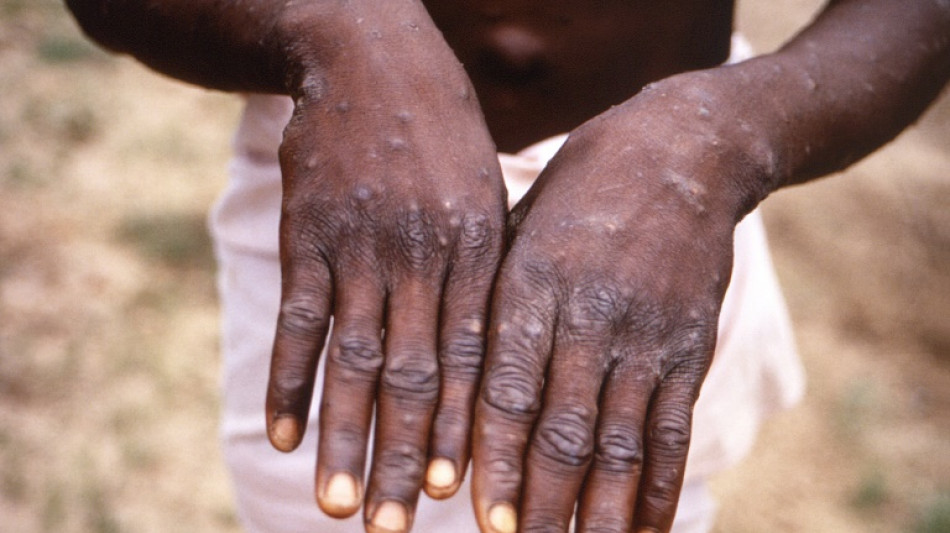
-
 Laurent Mauvignier wins France's top literary award for family saga
Laurent Mauvignier wins France's top literary award for family saga
-
Indian Sikh pilgrims enter Pakistan, first major crossing since May conflict
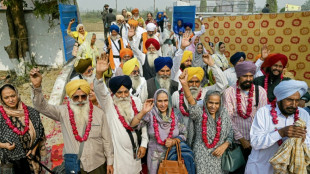
-
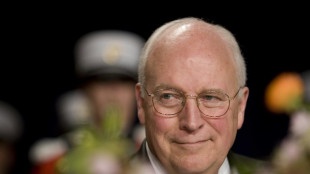 Former US vice president Dick Cheney dies at 84
Former US vice president Dick Cheney dies at 84
-
Fiorentina sack Pioli after winless start in Serie A

-
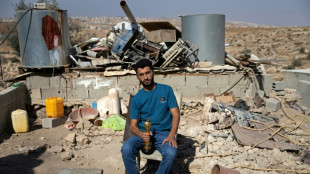 Oscar-winning Palestinian films daily 'Israeli impunity' in West Bank
Oscar-winning Palestinian films daily 'Israeli impunity' in West Bank
-
Spain's Telefonica shares drop on dividend cut, net loss

-
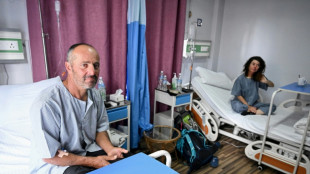 Fierce mountain storms kill nine in Nepal
Fierce mountain storms kill nine in Nepal
-
Divisive Czech cardinal Dominik Duka dies at 82
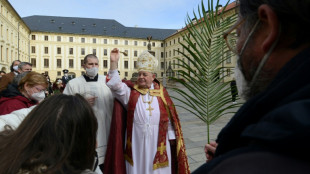
-
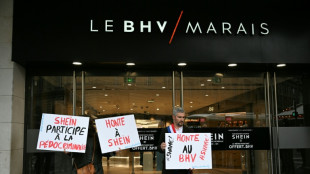 Shein vows to cooperate with France in sex doll probe
Shein vows to cooperate with France in sex doll probe
-
EU in last-ditch push to seal climate targets before COP30
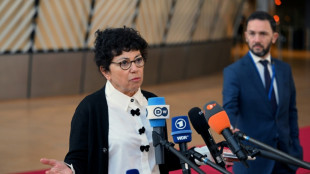
-
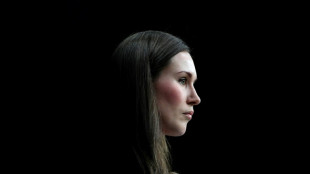 Finnish ex-PM Marin says her female cabinet faced torrent of sexism
Finnish ex-PM Marin says her female cabinet faced torrent of sexism
-
Sudan army-backed council to meet on US truce proposal: govt source
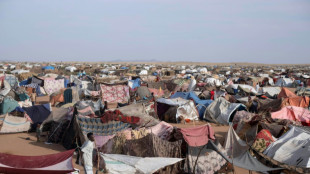
-
 BP profit surges despite lower oil prices
BP profit surges despite lower oil prices
-
Shein vows to cooperate with France in childlike sex doll probe
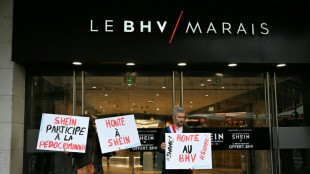
-
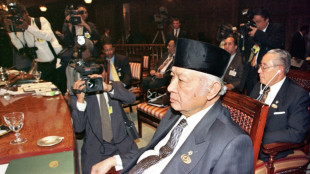 National hero proposal for Indonesia's Suharto sparks backlash
National hero proposal for Indonesia's Suharto sparks backlash
-
Indian great Ashwin out of Australia's BBL after knee surgery
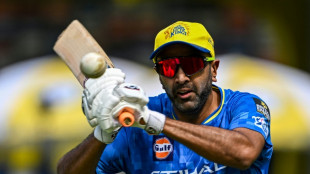
-
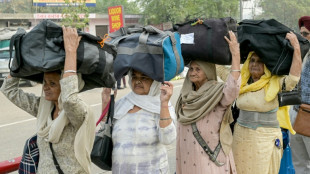 Indian Sikh pilgrims enter Pakistan, first major crossing since May conflict: AFP
Indian Sikh pilgrims enter Pakistan, first major crossing since May conflict: AFP
-
Asian markets slip as traders eye tech rally, US rate outlook
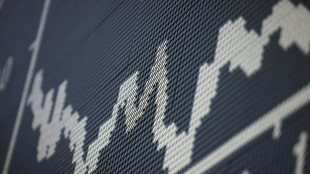
-
 Nintendo hikes Switch 2 annual unit sales target
Nintendo hikes Switch 2 annual unit sales target
-
Typhoon flooding kills 5, strands thousands in central Philippines
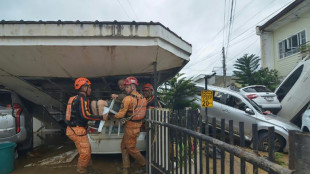
-
 Jobe Bellingham finding his feet as Dortmund head to City
Jobe Bellingham finding his feet as Dortmund head to City
-
US civil trial to hear opening arguments on Boeing MAX crash
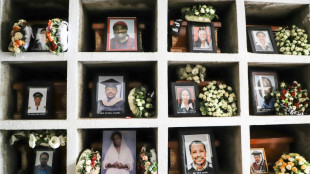
-
 Jamie Melham on Half Yours only second woman to win Melbourne Cup
Jamie Melham on Half Yours only second woman to win Melbourne Cup
-
Myanmar scam hub sweep triggers fraudster recruitment rush
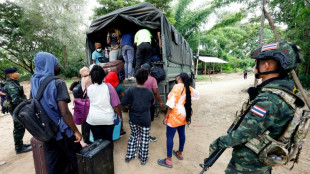
-
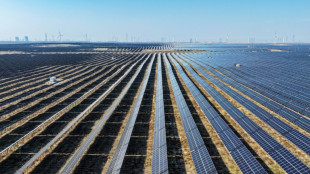 Biggest emitter, record renewables: China's climate scorecard
Biggest emitter, record renewables: China's climate scorecard
-
Floods strand people on roofs as typhoon pounds Philippines
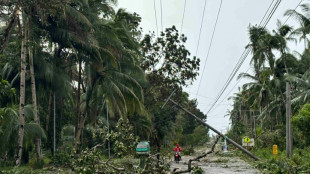
-
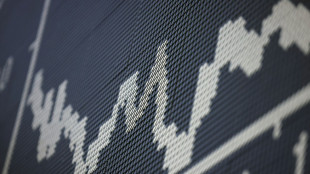 Asian markets swing as trades eye tech rally, US rate outlook
Asian markets swing as trades eye tech rally, US rate outlook
-
South Korea to triple AI spending, boost defence budget
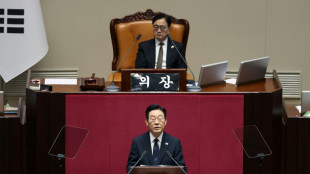
-
 Trott to leave as Afghanistan coach after T20 World Cup
Trott to leave as Afghanistan coach after T20 World Cup
-
Late queen's fashion to go on show at Buckingham Palace
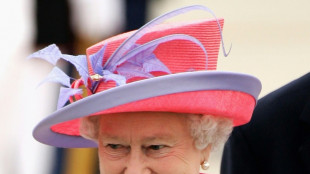
-
 In Morocco, exiled Afghan women footballers find hope on the pitch
In Morocco, exiled Afghan women footballers find hope on the pitch
-
EU scrambles to seal climate deal ahead of COP30
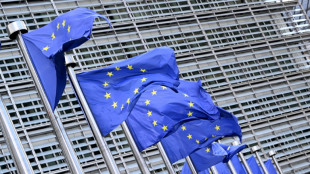
-
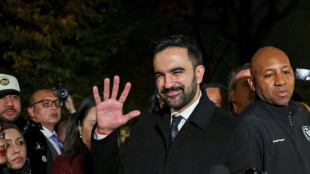 New Yorkers expected to pick leftist Mamdani in stunning election
New Yorkers expected to pick leftist Mamdani in stunning election
-
Pining for Pinochet: how crime fanned nostalgia for Chile's dictator

-
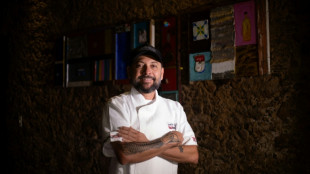 Why an Amazon chef said no to a vegan dinner for Prince William event
Why an Amazon chef said no to a vegan dinner for Prince William event
-
Cement maker Lafarge on trial in France on charges of funding jihadists
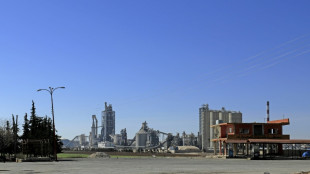
-
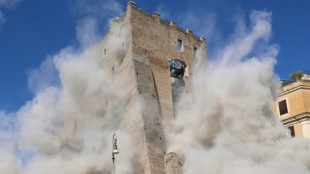 Worker dies after medieval tower partly collapses in Rome
Worker dies after medieval tower partly collapses in Rome
-
Run-machine Labuschagne in form of his life ahead of Ashes
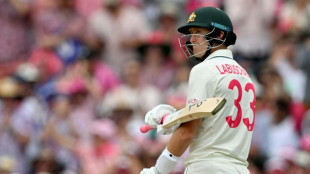
-
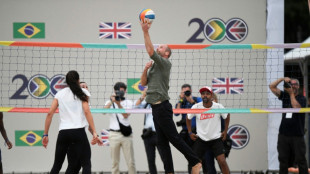 Prince William plays football, volleyball in Rio on climate trip
Prince William plays football, volleyball in Rio on climate trip
-
Jamaicans mobilize aid in aftermath of Melissa's wreckage
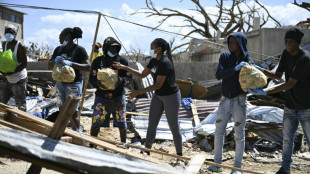
-
 Starbucks cedes China control to Boyu Capital
Starbucks cedes China control to Boyu Capital
-
'Wild at Heart' actress Diane Ladd dies at 89
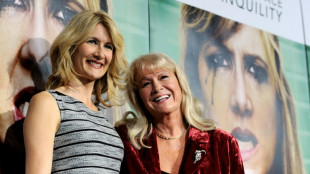
-
 Xhaka lifts Sunderland into fourth after Everton draw
Xhaka lifts Sunderland into fourth after Everton draw
-
Brazil records biggest annual fall in emissions in 15 years: report
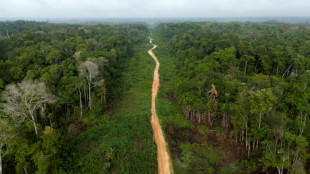
-
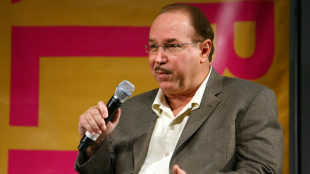 Victor Conte, mastermind of BALCO doping scandal, dead at 75: company
Victor Conte, mastermind of BALCO doping scandal, dead at 75: company
-
Trial opens in 1st US civil case on 2019 Boeing MAX crash
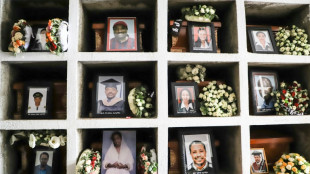
-
 Barrett brothers out of All Blacks' clash with Scotland
Barrett brothers out of All Blacks' clash with Scotland
-
Medieval tower partially collapses in Rome, trapping worker
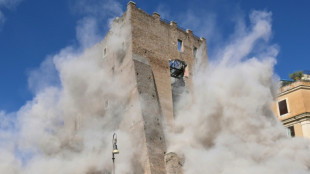
-
 Arsenal's Arteta says injured Gyokeres out of Slavia Prague tie
Arsenal's Arteta says injured Gyokeres out of Slavia Prague tie
-
Alonso says 'quality' Wirtz helped get him Real Madrid job


WHO to assess if monkeypox an international health emergency
The World Health Organization said Tuesday it would hold an emergency meeting next week to determine whether to classify the global monkeypox outbreak as a public health emergency of international concern.
The UN agency is also working to change the name of the disease, which was long confined to Western and Central Africa until more than 1,000 cases were detected in dozens of countries across the world over the last two months.
"The outbreak of monkeypox is unusual and concerning," World Health Organization chief Tedros Adhanom Ghebreyesus told journalists.
"For that reason I have decided to convene the Emergency Committee under the international health regulations next week, to assess whether this outbreak represents a public health emergency of international concern".
The emergency committee will meet on June 23 to discuss the designation, which is the highest alarm the UN agency can sound.
- New name -
Tedros added that the "WHO is also working with partners and experts from around the world on changing the name of monkeypox virus... and the disease it causes."
"We will make announcements about the new names as soon as possible."
The announcement comes after more than 30 scientists wrote last week that there was an "urgent need for a non-discriminatory and non-stigmatising nomenclature for monkeypox".
"In the context of the current global outbreak, continued reference to, and nomenclature of this virus being African is not only inaccurate but is also discriminatory and stigmatising," they wrote.
While monkeypox was first discovered in macaques, many cases are believed to be transmitted to humans by rodents.
The normal initial symptoms of monkeypox include a high fever, swollen lymph nodes and a blistery chickenpox-like rash.
However, the US Centers for Disease Control and Prevention said last week that current cases do not always present flu-like symptoms, and rashes are sometimes limited to certain areas.
Tedros said that 1,600 confirmed monkeypox cases and 1,500 suspected cases have been reported to the WHO this year from 39 countries, 32 of which have been recently hit by the virus.
While 72 deaths have been reported in countries where monkeypox was already endemic, none have been seen in the newly affected countries, Tedros said.
"Although WHO is seeking to verify news reports from Brazil of a monkeypox-related death there," he added.
- No mass vaccination -
To fight the global spread, the WHO aims to recommend "tried-and-tested public health tools including surveillance, contact-tracing and isolation of infected patients".
However, the WHO does not recommend mass vaccination against monkeypox, he said, after the European Union said Tuesday it had purchased almost 110,000 vaccine doses.
"While smallpox vaccines are expected to provide some protection against monkeypox, there is limited clinical data, and limited supply," Tedros told journalists.
"Any decision about whether to use vaccines should be made jointly by individuals who may be at risk and their health care provider, based on an assessment of risks and benefits, on a case-by-case basis."
Rosamund Lewis, WHO's technical lead for monkeypox, told journalists that there are a few smallpox vaccines that may be protective against monkeypox.
But "much of the data that we have is from years gone by, and/or from clinical studies -- there is not a lot of clinical data," she said.
She called on countries that are vaccinating to share their research and pointed to a set of interim guidance documents released by the WHO.
Tedros also emphasised that vaccines must be "available equitably wherever needed," adding that the WHO is working with its member states "to develop a mechanism for fair access to vaccines and treatments".
W.Lapointe--BTB




